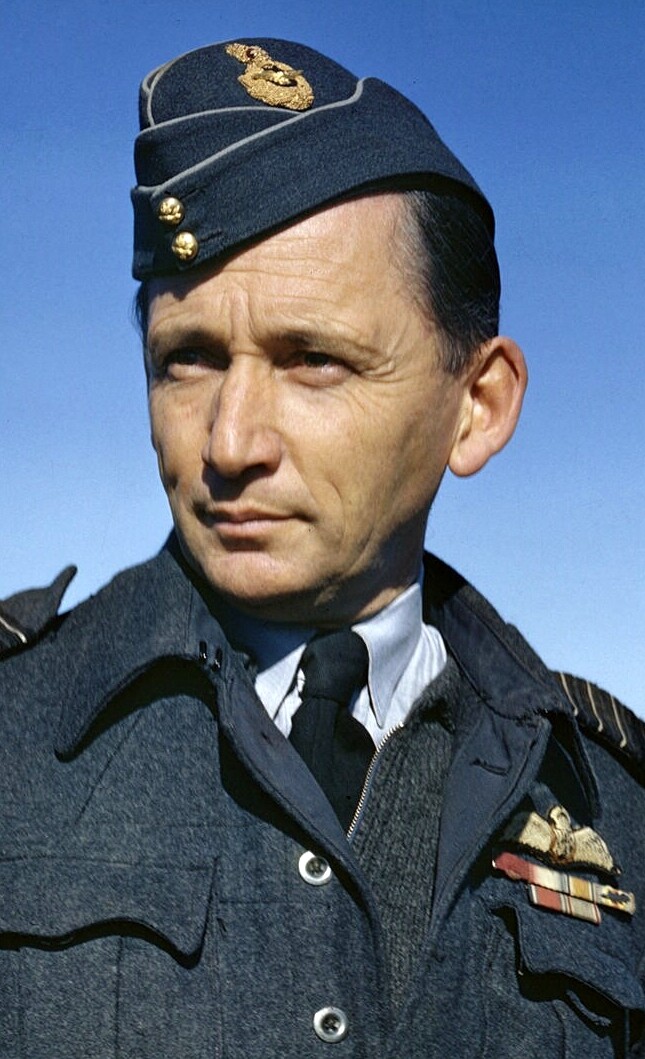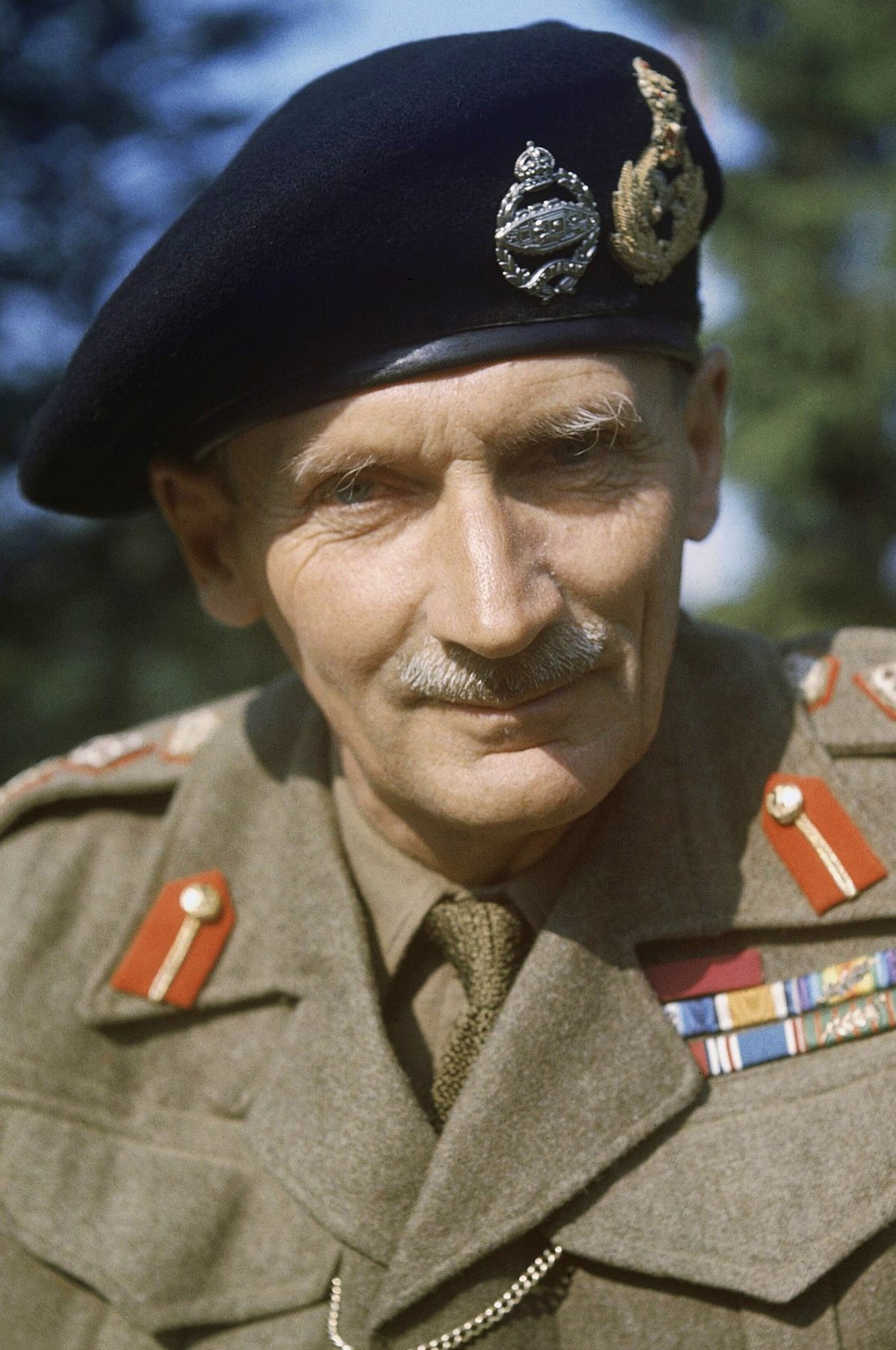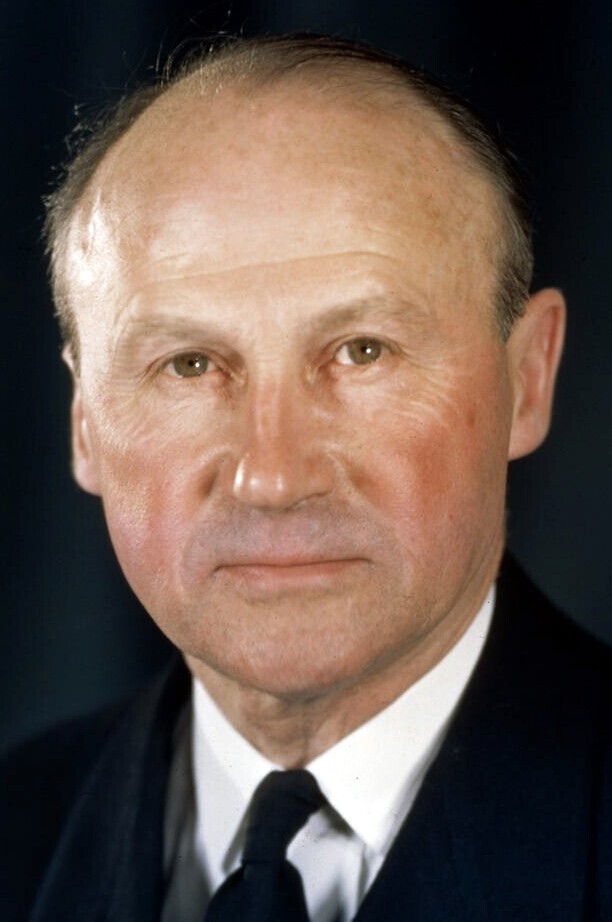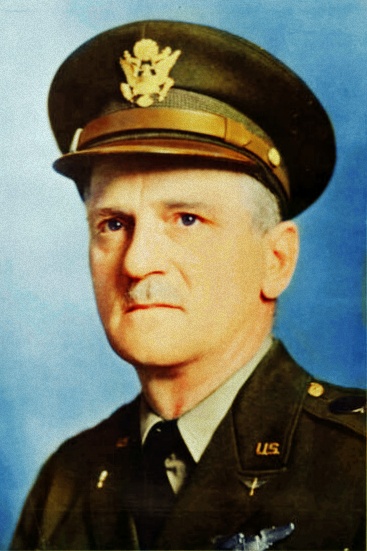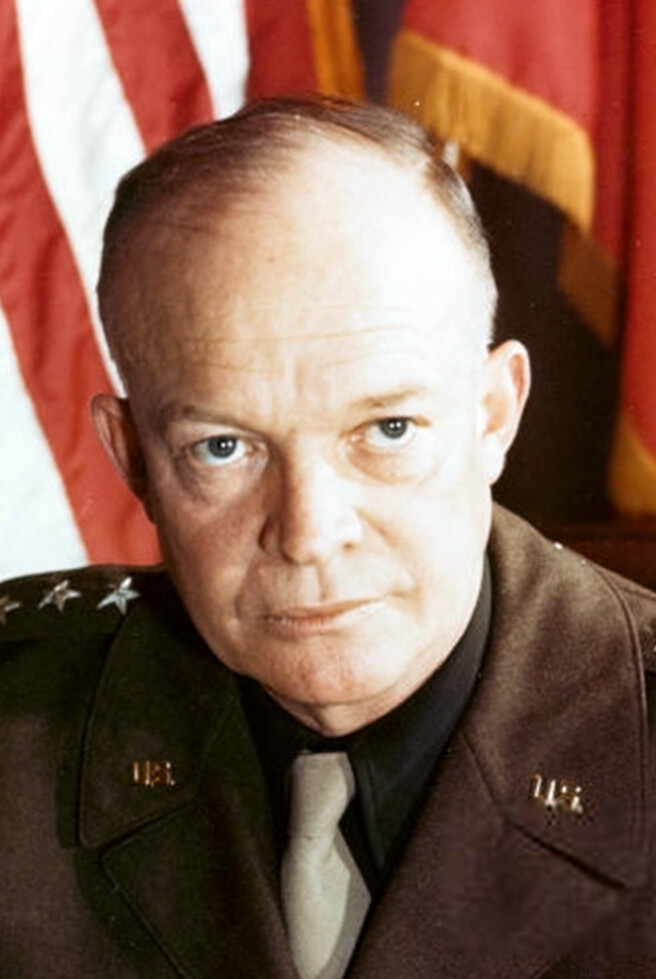The Pittsburgh Press (January 3, 1944)
Leaders of the second front –
Jug-eared, scholarly little man to lead air drive against Nazis
El Alamein victory partly due to his genius; Tedder can quote Shakespeare’s poetry!
By Boyd Lewis, United Press staff writer
Opening of the “second front” and victory this year have been heralded by Allied military leaders.
In a series of articles of which this is the first, Boyd Lewis of the United Press War Desk in New York, describes the kind of men chosen to lead U.S. troops into their supreme assault on the German continental bastion.
The first leader is Air Chf. Mshl. Sir Arthur William Tedder, the British air genius whom Gen. Eisenhower has chosen as his deputy.
Air Chf. Mshl. Sir Arthur W. Tedder: He knows what to do with blockbusters!
New York –
“War is a beastly thing and the sooner we get it over with, the better.”
The speaker is a compact, jug-eared little man with kindly blue eyes set in a weather-reddened face, a pipe drooping from a corner of his mouth and the insignia of a British air chief marshal on his tunic. He is Sir Arthur William Tedder, the dynamic human force which Gen. Dwight D. Eisenhower has recruited as his deputy commander of the forthcoming Allied assault against Germany’s continental bastion.
The phrase quoted is the war philosophy of one who had lost his son in a raid over Germany and his wife in a plane crash in North Africa, but in no way does it imply pacifism. Sir Arthur Tedder’s idea of the way to get the war over with as soon as possible is to hammer the enemy into submission with overwhelming airpower.
Sir Archibald Sinclair, British Air Minister, has described him as a man “with fire in his belly,” but this describes his quality of dynamism, drive and good-humored enthusiasm. Physically he is the antithesis of the fire-eating warrior. He is short of stature and he laughs frequently.
Plays good cricket
His diminutive frame is well muscled and he is said to play as good a game of cricket as many a man far less than his 53 years. When his airplanes are out, he likes to put on a faded blue RAF blazer and drop over to watch ground crewmen playing cricket or soccer. He avoids the symbols of rank whenever possible to save frequent salutes.
He can quote Shakespeare or the “moderns” by the yard and his personal scholarship rests firmly on a study of the British Navy in the time of Charles II which is still regarded as authoritative.
He was married last autumn to a tall, auburn-haired widow, the former Mrs. Marie Black, 18 years his junior, whom he met at a canteen in Africa where she was stationed as a WAAF officer. The first Lady Tedder died in the crash of a military plane in Africa the previous winter.
Almost unknown
Thrust into his greatest opportunity by accident, Marshal Tedder is almost unknown to the general public, although his professional reputation among military leaders – on both sides of the line – is supreme. Two and a half years ago, he was hardly known outside the Air Ministry in London, where he had the reputation of being a rather cocky little individual given to advocating innovations and experiments.
The son of Sir Arthur and Lady Tedder, he had the advantages of education at Whitgift and Magdalene College, Cambridge. In 1914, he was simply Mr. A. Tedder, an employee of the Colonial Service.
He volunteered at the outbreak of the war and was commissioned in the Dorset Regiment. The following year, he saw active service in France. In 1916, he requested transfer from the ground forces to the Royal Flying Corps and since then, the air has been his ruling passion.
Become squadron leader
Fighting as a pilot in France, he was mentioned in dispatches three times and in 1918 went to the Middle East as a squadron leader. Between wars, he employed himself in a succession of endeavors all aimed at developing the air weapon to its highest perfection. Successively he was a member of the Imperial Defense Council, the directing staff of the RAF Staff College, officer commanding the Air Armament School, Director of Training of the Air Ministry and Director General for Research and Development in the Air Ministry.
He was in this last post, working feverishly with Lord Beaverbrook to arm Britain’s skies, when fate trapped him for his big opportunity. To favor Marshal Tedder, it dealt unkindly with Air Vice Mshl. O. T. Boyd, who had been sent to Egypt in a Wellington bomber to become deputy to Air Chf. Mshl. Sir Arthur Longmore. The Wellington was compelled to make a forced landing on Sicily and Boyd was taken prisoner. Britain’s Air Council dispatched Tedder to take Boyd’s place.
Marshal Tedder arrived at Cairo in November 1940, a dark hour in Britain’s Mediterranean ordeal. British airmen were striving to match the speedy Nazi fighting planes with cumbersome biplane Gladiators and to bomb the enemy with lumbering Blenheims. Doughty little Malta had only three planes left to defend her against the mighty onslaughts of the Luftwaffe and the Italians.
Had tough task
In June, Tedder was promoted to command as Air Chief Marshal, was knighted and lost his son. With tenacity and imagination, he plunged unswervingly into the task of building an indomitable air cover for the desert troops. His first job was to get the planes. Gradually the Gladiators gave way to the Hurricanes and Spitfires and the Blenheims to U.S. Lend-Lease bombers.
Marshal Tedder was everywhere laying the groundwork for his tactics. He would bob up unexpectedly at an airdrome close to the front firing questions at pilots and ground crew and taking careful note of the answers which were often given with amazing bluntness, for the braided fatigue cap he inevitably prefers to his round cap with the gilded “scrambled eggs” on the visor gave no hint of his rank.
When the time came to launch the 8th Army’s march from El Alamein, Marshal Tedder was ready to deliver the mightiest air cooperation ever given an attacking army. He had shared a tent with Gen. Sir Bernard L. Montgomery and their land and air plans were synchronized.
Up into Italy
From El Alamein to Ortona, Marshal Tedder has covered the 8th Army and blasted its path. Across the desert he perfected the most deadly and sustained air bombardment yet seen in the war.
When Montgomery and Tedder reached the borders of Tunisia, Eisenhower flew to them in a B-17. The impression he received of Tedder impelled him to draft him for the land and air team he was forging to drive the enemy out of its last stronghold on the African continent.
He saw a man “supremely vital,” spare with the leanness of the warrior, keen with the sharpness of the great military leader, speaking with the scholarship of a Shakespearean student. He was “Gen. Ike’s” kind of man.
Greatest experiment
On May 6, 1943, Marshal Tedder launched his greatest experiment carpet bombing. Across a stretch of German Gen. Jurgen von Arnim’s almost impregnable line, he threw wave upon wave of bombers of every available type. In 2,000 sorties, they laid a carpet of destruction through the German line four miles long and 1,000 yards wide.
No defense could live under such an attack. The troops who charged through the gap and drove the Germans and Italians to their Tunisian debacle said there was hardly a yard of that strip which had not been plowed by explosives.
While his bombers were laying this carpet, Marshal Tedder sat in a bed in his headquarters chaffing a young flight lieutenant who was a writer of poetry.
Tedder said:
Of course, you fellows aren’t impressed with me. You think I’m not much good because I don’t know modern verse. Well, I do.
Warrior and scholar
He rattled off quotations from contemporary poets – including the lieutenant.
In another man, this would have been incongruous. In Tedder, it was consistent. Those who have known him well have always struggled to describe him in contradictory terms – “warrior and scholar,” “more than a mere fighting man.”
His good humor is proverbial. Once in the sweltering desert when he had discarded his tunic, an officer who did not recognize him joshed him for wearing his tie.
Marshal Tedder explained:
Oh, I’m a headquarters bloke and you know how stuffy the chief is.
Lady Tedder was killed last winter while on her way to visit wounded at a hospital. Marshal Tedder went in her place the next day and chattered and laughed with the men in the wards. One of them remarked afterward: “What a man!”
